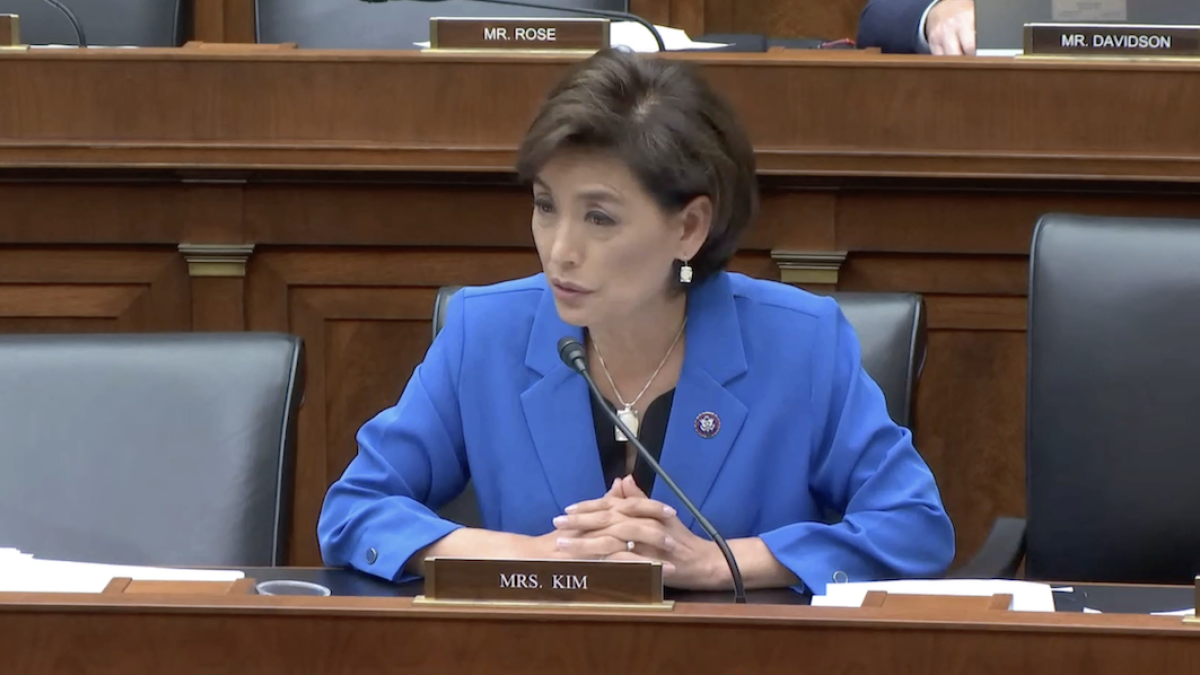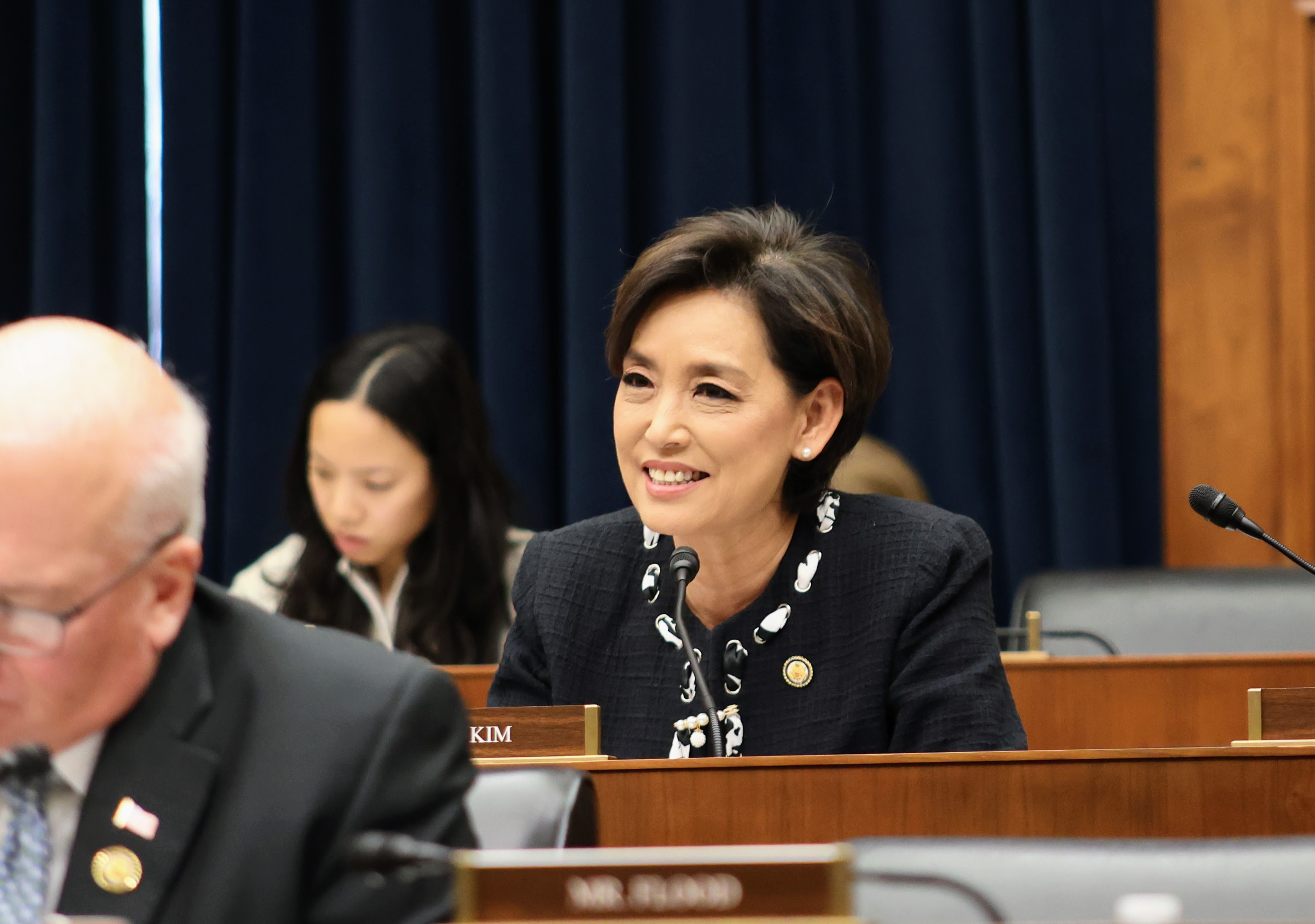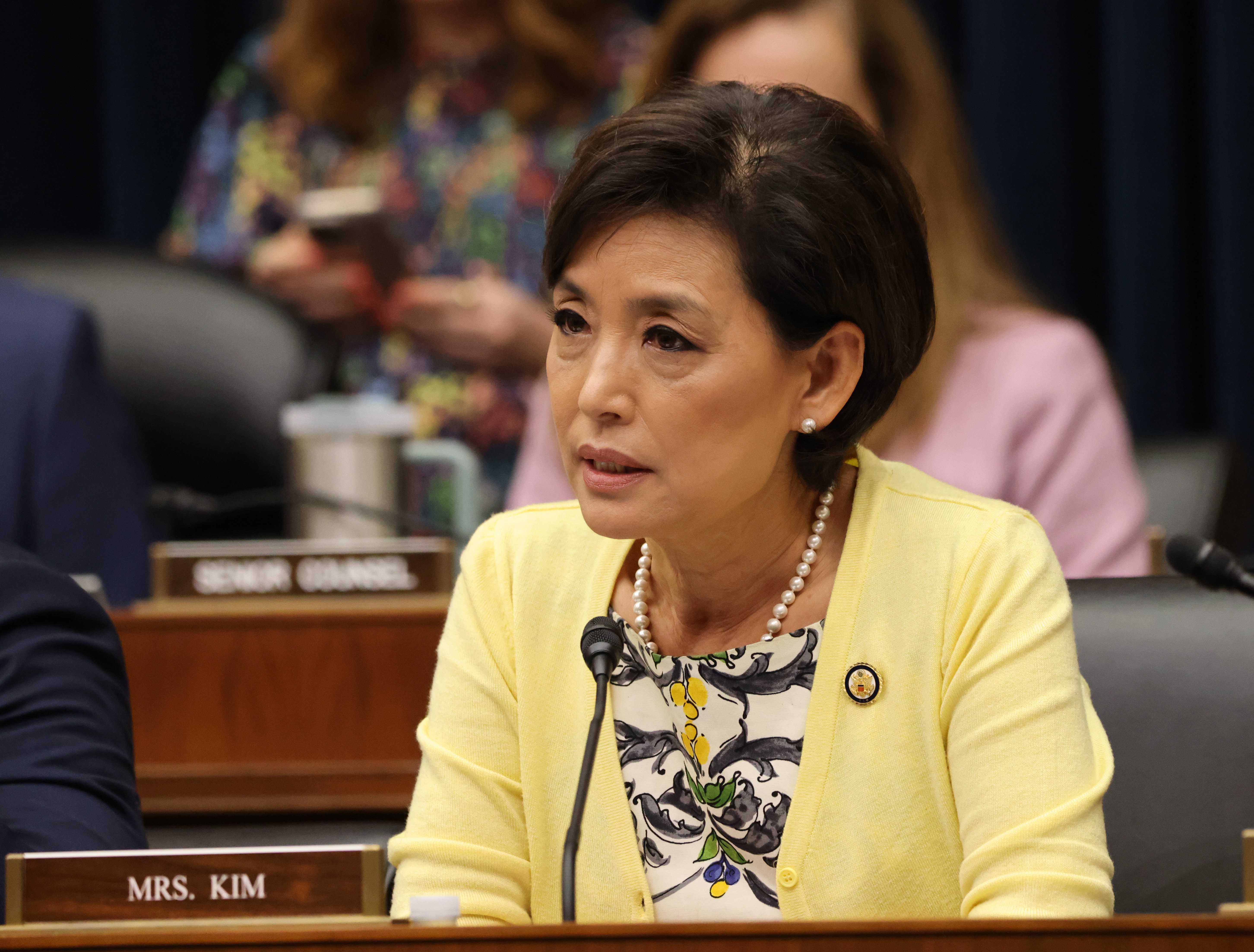Originally Published in Foreign Policyon July 27, 2023
Today is Korean War Veterans Armistice Day, marking 70 years of the signing of the Korean War armistice agreement and of the alliance between the United States and South Korea. That alliance has become one of the United States’ strongest, adapting over the decades to maintain our shared economic and security goals while remaining focused on shared values of freedom, democracy, and rule of law. An end-of-war declaration undermines these shared values that U.S. and Korean forces fought for 70 years ago and cedes leverage to the North Korean regime.
I know South Korea. As a Korean American who grew up in South Korea in the aftermath of the Korean War, this is personal to me and guides my work in the U.S. Congress as chairwoman of the Indo-Pacific Subcommittee of the House Foreign Affairs Committee. I was born in Incheon, where U.S. Gen. Douglas MacArthur made his famous landing to push the North Korean army north of the 38th parallel.
The South Korea I grew up in during the 1960s was very different from the South Korea we know today. It was under the rule of a dictatorship, and still recovering from the war’s devastation. This is the South Korea that vividly remains in my memories as a young girl, when I saw my first glimpse of freedom and opportunity as I looked up, wide-eyed from the side of the road, at U.S. soldiers throwing candy from their trucks.
In my lifetime, South Korea has transformed from the donor recipient country I knew as a child to the highly developed donor country I visit today. South Korea has blossomed into an industrialized “start-up nation,” boasting the world’s 10th-largest economy, leading the world in the development of innovative technologies, and transforming into a reliable partner in security and global affairs for the free world.
During his joint address to the U.S. Congress in April, South Korean President Yoon Suk-yeol touted how far South Korea has come: “Seoul was once reduced to ashes. Now it is one of the world’s most vibrant digital cities. Busan was once flooded with war refugees. Now it is the world’s second-largest port city in terms of transshipment volume.”
As more time passes, today’s modern and successful South Korea is the only one known by many South Koreans and Americans. As memories of devastation from the Korean War fade, many are pushing the idea that the only way to make progress on denuclearization of the Korean Peninsula is to make unilateral concessions to get the Kim regime back to the negotiation table. In other words, less sticks, and more carrots.
A bill was recently reintroduced in the U.S. House of Representatives to codify unilateral concessions and support a formal end-of-war declaration. The Peace on the Korean Peninsula Act (H.R. 1369) directs the Department of State to review current restrictions barring U.S. nationals from traveling to North Korea for travel that qualifies as “in the national interest” of the United States, and it calls on the secretary of state to actively promote meetings “with a view to replacing the Armistice Agreement with a peace agreement and establishing a permanent and solid peace regime.” Further, it calls on the secretary to “pursue serious, urgent diplomatic engagement with North Korea and South Korea in pursuit of a binding peace agreement constituting a formal and final end to the state of war between North Korea, South Korea, and the United States.”
The big problem here is that North Korea has consistently failed to abide by previous attempts to make peace on the Korean Peninsula. In 1992, South Korea and North Korea agreed to the Agreement on Reconciliation, Nonaggression, and Exchanges and Cooperation Between the South and North, which states that “the two sides shall endeavor together to transform the present state of armistice into a solid state of peace between the South and the North and shall abide by the present Military Armistice Agreement until such state of peace has been realized.”
In 2007, the South and North agreed to the Declaration on the Advancement of South-North Korean Relations, Peace, and Prosperity, which states, “the South and the North have agreed not to antagonize each other, reduce military tension, and resolve issues in dispute through dialogue and negotiation. The South and the North have agreed to oppose war on the Korean Peninsula and to adhere strictly to their obligation to nonaggression.” Most recently, the two sides agreed to “build a permanent and stable peace regime on the Korean Peninsula” in the Panmunjom Declaration.
That’s a lot of words promising peace—and almost no actual follow-up from Pyongyang’s side. Can anyone honestly assess that North Korea has met its obligations to “not antagonize” South Korea and “reduce military tension” as it launches intercontinental ballistic missiles into the Sea of Japan and gears up to conduct another nuclear test? The precedents show that the Kim regime, even if it agreed to a permanent peace, would not abide by the terms of such an agreement.
North Korean leader Kim Jong Un is not a reliable negotiator, engages in illegal activity to circumvent sanctions on the country’s nuclear weapons program, and has declared the armistice agreement as invalid. Time and time again, he has shown that he cannot be trusted and has no interest in formally pursing an end to the Korean War. In 2021, Kim Jong Un’s vice foreign minister shot down former South Korean President Moon Jae-in’s call for peace, characterizing it as premature. There is no reason for us to think otherwise.
There would also be immediate security consequences for South Korea and the region if a peace declaration, like previous agreements and declarations, were determined by North Korea to be invalid or premature.
A likely predicate for a peace treaty would be the withdrawal of U.S. forces from South Korea The United States currently has 28,500 troops stationed in South Korea, which is the third-largest U.S. military presence in a foreign country. Since the signing of the 1953 armistice, these troops have served as a deterrent to another North Korean invasion or nuclear attack.
Yoon also made clear as a presidential candidate last year that he opposes an end-of-war agreement, saying that “you cannot protect national security and peace with paper and ink.” Most of the South Korean public agrees with this stance. These U.S. forces also give the United States the capability to conduct routine joint military exercises in response to North Korean, Chinese, and Russian provocations in the Indo-Pacific. Removing forces from South Korea before the complete, verifiable, and irreversible denuclearization of North Korea would have disastrous consequences and put tens of millions of Korean, American, and Japanese lives at risk.
Peace on the Korean Peninsula cannot be achieved through words alone—it requires action. Binding guarantees can only be ensured through strength, and giving concessions to authoritarians who have no real interest in peace only prompts further aggression. History has given us no reason to think otherwise. In 1938, the U.K. and France conceded the annexation of Czechoslovakia to Nazi Germany, believing that the concession would stop Germany’s expansion. By 1945, most of Europe was in ruins. In 2014, the free world timidly responded to Russia’s annexation of the Crimean Peninsula but failed to take concrete action. Today, in 2023, Ukraine is fighting for its existence.
The United States and South Korea should pursue a permanent peace on the Korean Peninsula only when certain conditions are met by North Korea, and they should remain firm on those conditions. They should include the irreversible destruction and dismantling of all nuclear facilities and weapons, a complete cessation of all illicit activities to evade sanctions, and improvements on human rights.
The memories of the destruction of the Korean War are fading—which shows how far we have come. Today, as we reflect on the 70th anniversary of the signing of the Korean War armistice agreement, we must commit to never let the plight of the North Korean people become a peripheral concern and remember that the success of the U.S.-South Korea alliance stems from strength and resilience, not concessions to authoritarians.




